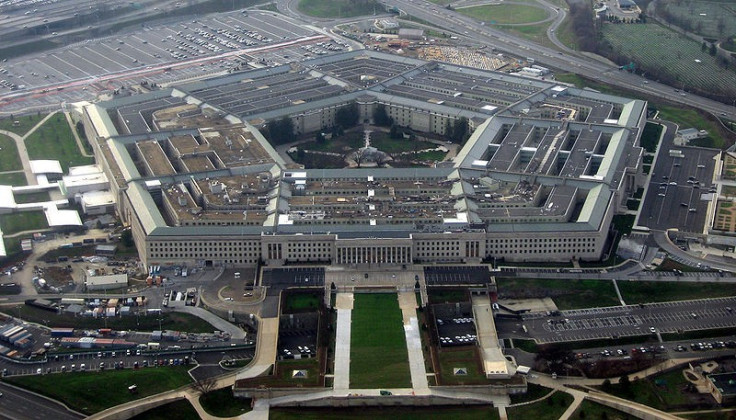Pentagon drafting civilians into Cyber Mission Force to combat cyber terrorism national emergency

The Pentagon is now recruiting tech-savvy civilians to join a cyber reserve force that can be called upon to defend the US against cyberattacks to critical infrastructure such as electrical grids and telecoms during a crisis.
Eric Rosenbach, the defence principal cyber adviser to the Secretary of Defense, told the Senate Armed Forces committee on 14 April: "The Department of Defense relies on US critical infrastructure to perform its current and future missions. Intrusions into that infrastructure may provide persistent access for potential malicious cyber operations that could disrupt or destroy critical systems in a time of crisis.
"Because of these severe consequences, DoD is working with our partners in the interagency and private sector to ensure these systems are better protected."
In October 2014, Russian hackers succeeded in breaching the cybersecurity defences of the White House and were able to steal some information. While the White House officials downplayed the cyberattack, on 8 April US media reported the hackers were able to gain access to US President Barack Obama's private schedule.
White House counter-terrorism coordinator Lisa Monaco announced in February that the US government was setting up the Cyber Threat Intelligence Integration Center (CTIIC) to join the dots between various agencies in the country.
Obama has moved cybersecurity to the top of his 2015 agenda after recent hacking attacks against Sony Pictures, Home Depot, Anthem and Target, and the federal government itself.
Sharp increase in cyberattacks on critical infrastructure
Rosenbach said the DoD had already seen the "loss of significant amounts of intellectual property and sensitive DoD information that resides on or transits Defense Industrial Base systems", which had the potential to hurt US companies and economic growth.
And, according to computer manufacturer Dell, attacks on industrial control and SCADA systems have quadrupled from 2013 to 2014, increasing from 168,228 in January 2013 to 675,186 in January 2014, with 51,258 attacks on SCADA systems in the US.
"Whereas the motive behind POS and secure web browser attacks is typically financial, SCADA attacks tend to be political in nature, since they target operational capabilities within power plants, factories, and refineries, rather than credit card information," Dell wrote in the report.
Rosenbach said the DoD is now investing heavily into a Cyber Mission Force that will spearhead cyber operations to defend the DoD's networks, defend the US against cyber threats and support any contingency plans and military operations.
Harnessing the power of the US cybersecurity industry
By 2018, there will be 133 teams consisting of almost 6,200 military and civilian personnel who have been trained and equipped with the tools and infrastructure to defend US cyber space. The DoD wants its civilian personnel to come from "the most talented experts in both the uniformed and civilian workforce, as well as a close partnership with the private sector".
The US government has been struggling to find enough cyber security experts to join its ranks over the past 12 months. In May 2014, the FBI even went so far as to admit it was considering relaxing its No Weed policy in order to attract more hackers, as it had 2,000 jobs it needed to fill for its cybercrime unit.
By asking IT and cybersecurity professionals to serve as reserve forces and let them keep their day jobs, the DoD is hoping to harness the power of the US cybersecurity industry in case cyberterrorism incidents escalate even further.
Rosenbach concluded in his testimony to the Senate: "Cyber threats are real, serious and urgent, and we can only overcome them with a cohesive, whole-of-government approach. We have made significant strides but there is still more work to be done.
"I look forward to working with this Committee and the Congress to ensure that DoD has the necessary capabilities to keep our country safe and our forces strong."
© Copyright IBTimes 2025. All rights reserved.






















